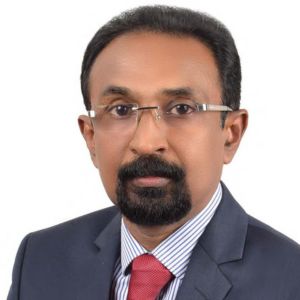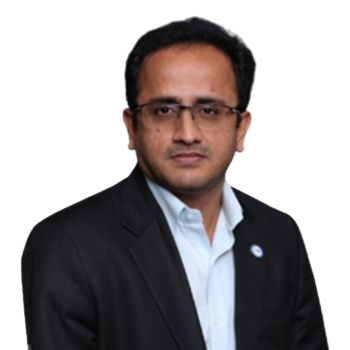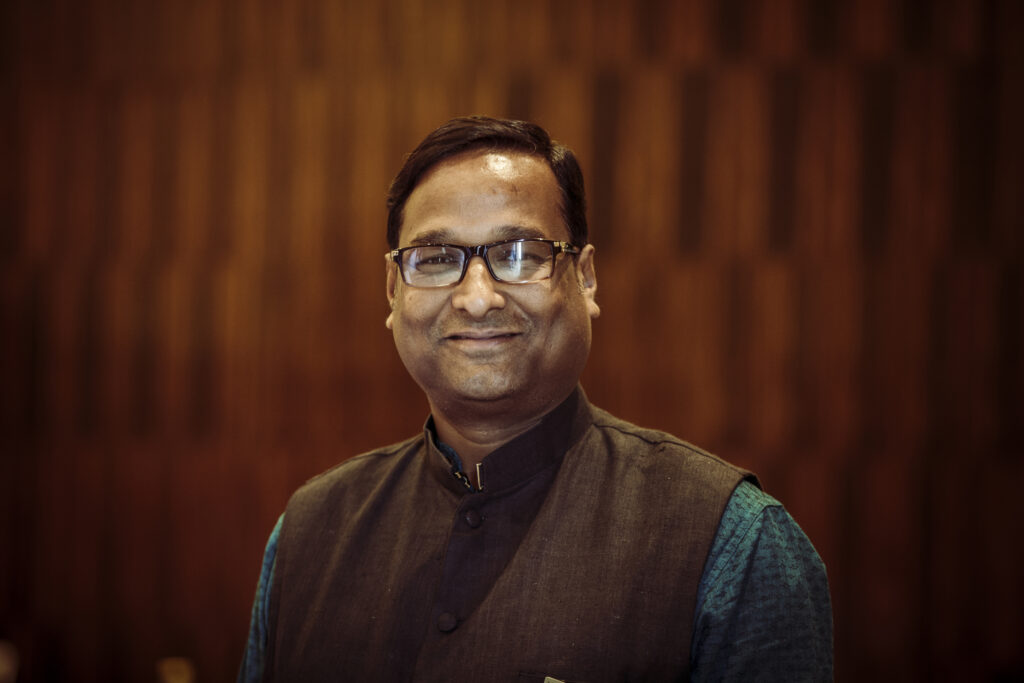Menu
Advanced Leadership Program for Infrastructure and Construction (ALPIC) is a one-of-a-kind curriculum that provides a holistic overview to develop solutions through systems thinking and problem-solving approach for emerging leaders in the sector.

Welcome to the Advanced Leadership Program for Infrastructure and Construction (ALPIC). It is a one-of-a-kind curriculum that is offered by the Infrastructure Sector Leadership Academy (ISLA). It provides a holistic overview to develop solutions through systems thinking and problem-solving approach for emerging leaders in the sector. It covers inner, inter, and intradisciplinary modules for overall development. Embark on a journey of leadership transformation with ALPIC.
InCoBAN has partnered with Singapore Management University-Executive Development, to bring you ALPIC. It is intended to orient the leaders to understand the infrastructure and construction sectors from high altitudes, get a holistic approach, and develop systems that can solve the problems faced by the sector. SMU is a premier Asian university, recognised for its research and distinguished teaching style. Executive Development empowers leaders, enhances organisational capabilities, and offers immersive learning experiences, bridging the theory-practice gap for success in a dynamic business world. Whether through leadership development, employee training, or immersive programs, ExD champions lifelong learning and professional excellence.
Elevate your understanding, amplify your problem-solving abilities, and contribute to the advancement of the infrastructure and construction sector. Discover the power of systems thinking and unleash your potential to create lasting impact. The future of leadership in this dynamic field starts here.
InCoBAN industry improvement initiative, being shouldered to address the fundamental issues faced by the Indian Construction Sector, which provides livelihood for 60 to 70 million people in India. Managing Infrastructure and construction projects is a multi-dimensional challenge that continues to confront growth of Indian Construction Sector. For India to capitalize on its robust demography, leapfrog and arrive at a global stage, it needs to implement these complex programs effectively. It should be handled through an institutionalized ecosystem with a high degree of risk management maturity.
Complex system problems demand complex solutions, is the IKIGAI of InCoBAN. InCoBAN will act as a platform, work with various stakeholders and help transform the infrastructure and construction ecosystem.


SMU Executive Development (SMU-ExD) take pride in shaping the future of professionals and organisations through our dynamic and comprehensive array of executive education programme. Located in heart of Singapore city, SMU-ExD is the destination for executives and enterprises seeking to thrive in today’s rapidly evolving business landscape.
ExD is more than an educational institution; it’s dedicated to lifelong learning and professional empowerment. It’s purpose is to provide tailored education and development solutions for individuals, organisations, and executives. ExD empowers leaders, enhances organisational capabilities, and offers immersive learning experiences, bridging the theory-practice gap for success in a dynamic business world. Whether through leadership development, employee training, or immersive programmes, ExD champions lifelong learning and professional excellence.
The objective of ALPIC is also to equip leaders with the ability to comprehend complex issues and study their potential impact on hyperplane and look at them through a multi-dimensional prism for effective decision-making. This program is intended to develop leaders with a holistic perspective on the infrastructure System of Systems approach.

Understand the disruptions and their implications on infrastructure due to emerging global business models

Develop a deeper understanding of the sector with factual perspectives and an evidence-based thinking approach

Cultivate leadership, positive deviation and leverage the ethos, ethics, equity, and values embedded in our culture

Appreciate Volatility, Uncertainty, Complexity and Ambiguity (VUCA) and develop learning agility and versatility

Imbibe the exponential mindset with 'futuristic' skills and enhance self-awareness of various dimensions of emotional intelligence.

Develop strong social network, become catalysts and change agents

Think technology while performing in the labor-intensive industry
The course will have four terms with six to seven subjects in each term. Each term will be three months in duration with 6 to 7 days of residency per term. Every course will have a minimum of 10 hours of lecture, both online and offline combined.






The teaching will be a combination of self-reflective modules including lectures, class discussions, case studies, quizzes and presentations with significant involvement of participants inside and outside the classroom. The Program will include many practical exercises and activities that are insightful and will be delivered in interactive learning methods. The lectures will be delivered by eminent faculties from academia, industry, institutions and government. Participants will also work on a group/individual capstone project on topics that could make a larger impact in the infrastructure and construction sector.
Disclaimer: InCoBAN is the registered trademark of M/s. Synergasia BE-NEX Private Limited (SBPL). SBPL and Singapore Management University are collaborating for this leadership program.
The ALPIC admission decisions are based on each prospective participant’s professional qualifications and achievement. Ideal candidates meet the following criteria:





Instalment | Fee |
Admission Fee | 10% |
Before start of Term 1 | 45% |
Before start of Term 3 | 45% |

Academic Director- SMU Executive Development,Singapore Management University

International Project Leadership Expert, Advisor (Industry & Energy) of CPPR and Co-founder of InCoBAN

Director- Centre for Management Practice, Singapore Management University

Development Economist, Professor and Former Economic Advisor to the Union Finance Minister of India.

Lee Kong Chian Professor of Operations Management, Deputy Dean (Programs), LKCSB Singapore Management University

Co-founder InCoBAN, Past Director – Region 8 AACE International, Former COO – Karle Infra

Former Director, Building Construction Authority (BCA) Chartered Professional Engineer (Australia) Founder and Director, Digibuild Singapore

Clinical Associate Professor (Research) and Research Director Bharti Institute of Public Policy, Indian School of Business
Infrastructure issues emerge from decisions based on the assumption that systems are static. Building resilient and sustainable infrastructure requires a new approach. The objective of the ALPIC is also to equip the leaders with the ability to map complex issues, project them, and study their potential impact on the hyperplane instead of looking at them through a bi-dimensional prism for effective decision-making in infrastructure and construction projects.
Remarkable achievements in human history are mostly born of individual initiatives, not through state domination or interventions. ALPIC is designed to develop such motivated leaders. Sustainable infrastructure development requires maintaining economic, social, and ecological balance, all while preserving the quality of life and competitiveness. ALPIC intends to orient the leaders and aspiring ones to understand the infrastructure and construction sector from a holistic approach and develop systems that can solve the problems faced by the sector. ISLA is committed to developing System Thinkers and Problem Solvers.
15th April 2024
A certificate from SMU Executive Education and InCoBAN will be issued upon successful completion of all the terms.
Indian Registrations : Rs 7,50,000/- excluding the GST
International Registrations: USD 14,500/- including taxes
The fee includes residency
Optional visit to SMU as a part of the program
No, this is a Leadership Program offered jointly by SMU Executive Education and InCoBAN.
You can start your application form by downloading the form below. Please go through the application guidelines carefully.
Students who participate in ALPIC Programs are expected to have a good command of the English Language.
The program will be offered in hybrid mode, both online and offline.
The offline sessions will be in India. The venue will be confirmed at the earliest. There is also the option of visiting Singapore for the graduation ceremony. The fee does not include a visit to Singapore. Students have to bear the expenses.
The program is scheduled to commence in June 2024, and the exact start date will be communicated one month before the program begins. You can find more information on the program on our website InCoBAN. The program is set to conclude in March 2025.
Yes. The students will join the SMU community as Associate Alumnus and continue their lifelong affiliation with the university. They will gain access to curated benefits and perks, including exclusive resources and offers that are accorded to SMU alumni.
In addition to the above, the participants will be admitted as Lifetime Members of InCoBAN’ s think tank, Skopos India Foundation. This benefit will be extended to the first batch of ALPIC at no extra cost. The students shall be part of an elite community and continue to contribute to the transformation of the sector.
No, executives are not eligible for distance learning. Programmer content will be 20% available online and 80% offline.
The program is structured in such a way to bring collaboration and networking opportunities among highly experienced individuals. The program will result in building a community of lifelong learners and benefit from the cohorts.
The details regarding the program, faculty, and course can be accessed from the brochure download brochure as well as the website InCoBAN. For further queries, contact +91-9035541010/31010/21010 or email ALPIC@InCoBAN.org
80% attendance is mandatory for each course. The candidate has to match this requirement. Only very special cases will be considered for exception.
The application process is the same everyone. Refer to the Admissions page of our website. In case of any queries, you can contact +91-9035521010.
Yes, for the period of residency, the students are expected to be available in person. This program is designed for working professionals. The program design is such that it causes hindrance to professional commitments.
Leadership through oriental prism, systems thinking, asset lifecycle and public policy, how organizations and nations improved productivity, National PMOs, Complex adaptive systems, Sustainable urban development, Futuristic business models, Technology and future of work, Negotiations etc.
The decision will be made on a case-by-case basis. Only valid and exceptional cases will be given exemptions. The candidate can subsequently join the same term in the next batch. The fee payment terms will remain the same.
No. The program is structured in four terms in such a way that the participants meet the intended outcomes of the program. Taking up only a few courses will not help achieve the objectives of the program and is therefore not encouraged. Program completion certificate will be awarded only to candidates who have completed all the terms.
According to your area of interest and level of curiosity, it might vary. During the residency, an average learner might be required to dedicate six days every quarter and at least five to six hours per week to learning.
In order to complete the program, the student must complete all 24 modules. A capstone project must be submitted towards the end of the program for successful completion.
You may watch the recordings of the sessions. This may not substitute the requirement of minimum 80% of attendance for every session.
Yes. Group and Individual assignments are integrated into the course structure.
You will receive a guide with case readings, assignments for the first few days of the programme, and a detailed schedule about three weeks before the programme begins.
Yes. You will get access to the relevant sections of SMU library.
Students shall share copy of the certificates along with the application form.
Yes, provided that the original language records are submitted with official translations into English. Translations provided by the organization or by a reputable translation agency are accepted. Translations have to be accurate and comprehensive copies of the source documents.
Professional references (2 Nos) whom we may reach out in case we have to assess your suitability for the ALPIC program.
There is a non-refundable application fee is Rs 1,500. The student shall pay the amount online along with submission of the application form.
No. Since it is the 1st Batch of ALPIC, the program fee is kept very reasonable.
After completion of the interview round, admission decisions are typically made within 15 working days.
The shortlisted candidates are required to pay Rs. 100,000 or USD 2000 within 15 days of receipt of admission letter.
If a student withdraws the application after paying the reservation amount, 75% of the reservation amount will be refunded, provided such a request is made at least 15 days before the start of the program. Deferral requests, if any, can be considered only after completing the first term. The participant should pay 50% of the remaining fee in case he or she has to defer attending the program to next year to avail the fee in case the student does not want to pay the incremental fee of the next batch.
Fee covers accommodation and food during the period of residency. The fee does not cover travel, alcohol, laundry etc.
The payment shall be made either through Bank Transfer or Cheques in favour of Synergasia BE-NEX Private Limited or through the payment gateway in the ALPIC portal.
Of course, you can. The bank charges if any have to be borne by the participant.
InCoBAN has tied up with a few banks to facilitate financing the program fee to the students. You shall contact the banks directly.
The residency will be India.
4 terms. Each term will have 2 to 3 hours of online and 7 to 8 hours of offline teaching.
Accommodation and food will be part of the program fee. Students are expected to remain at the venue during the residency and cannot opt to come from their homes.
No, Everyone will be given a separate room.
Residency sessions will be 6 continuous days. Since the participants are working professionals, the residency will be planned to include weekends, thus causing minimum disruption to their work.
For online sessions, the candidates will need computer, strong network connection and other necessary items required to attend the sessions.
Yes, the sessions will be recorded, and viewing access will be given to the students during the tenure of ALPIC.
Dr. Markus Karner designs and teaches SMU-ExD programmes and ensures the alignment of faculty with client needs. He heads the SMU-ExD Media Team, creates technology for virtual programmes, and oversees academic teaching standards.
Coming from the natural sciences, Markus is curious about natural, economic, and technological systems. He then applies his interdisciplinary insights to business: How to create good designs, strategies, and business models. With SMU since 2005, he was previously at the University of Southern California in Los Angeles and at the University of Hawaii in Honolulu. He was awarded the U.S. National Science Foundation Medal for Services in Antarctica, published in peer-reviewed journals such as the journal Nature, and wrote a textbook on biological models for business.
Dr. Madhu Pillai is a Project Management specialist with more than 35+ years of broad-based Oil & Gas, Petrochemical and Power industry experience in Operations and Project Management with a geographical spread of India, Nigeria, USA, Bahrain, Qatar and Saudi Arabia. He has been associated as Projects Director with leading MNCs. Dr Pillai is an Engineer with post-graduation in Management and Ph D in Strategic Project Management. He is a Fellow of many leading international organizations like, AACE International and International Cost Engineering Council, Institution of Engineers etc.
He was awarded the O T Zimmerman Founder’s award by AACE International in 2008 for his contribution to the ‘Global Cost Management Professional Community’. Dr Pillai serves on the board of International Cost Engineering Council – ICEC as Executive Director (Middle East). He is the Honorary Global Ambassador for World Project Management Forum (WPMF), Advisor to Center for Public Policy Research (CPPR) and Executive Director of WAFA – Denmark.
Dr Havovi Joshi is the Director Centre for Management Practice at Singapore Management University (SMU) and the editor-in-chief of SMU’s Asian Management Insights. Havovi graduated with honours from the University of Delhi with a B.A. (Hons) in Mathematics, followed by a Master of Business Administration degree from the Indian Institute of Management, Ahmedabad. She completed her Doctor of Business Administration from SMU, where her thesis focused on global competitiveness and managing disruption in emerging markets.
Havovi’s knowledge and understanding of business practice are backed bymore than 15 years of experience in international banking and consulting services in India, Australia, and Mauritius. Thereafter, she transitioned into academia when she joined the Asia Case Research Centre at the University of Hong Kong. In 2012, she relocated to Singapore, where she helped establish the Centre for Management Practice (CMP) at SMU. The role of CMP is to promote two-way learning between academia and business through case studies and management articles and support the dissemination of research into translational knowledge to be anchored firmly into effective practice.
Dr Rajeev Malhotra, a development economist, seamlessly bridges the realms of academia and policymaking. He holds a master’s degree in economics from the Delhi School of Economics and the London School of Economics (LSE), and has a PhD from Jawaharlal Nehru University, New Delhi. With a distinguished academic background, he brings a wealth of experience as a policymaker, having worked at the Ministry of Finance, where he was Economic Advisor to the then Union Finance Minister of India and at the erstwhile Planning Commission. He has also worked with the United Nations in Geneva Switzerland. Dr. Malhotra helped set up the School of Government and Public Policy at O.P. Jindal Global University, Delhi NCR in 2012, launching India’s first taught master’s program in public policy. He is currently a Visiting Professor at the Indian School of Business, Hyderabad and Mohali, India. Dr. Malhotra has extensively consulted for international and national organizations, including the Asian Productivity Organization, Tokyo; the Commonwealth Secretariat, UK; the United Nations system entities: UNDP, FAO, UNDG-UNICEF, UN OHCHR, Geneva, Ukraine, Fiji and Nepal; UN-ESCAP, Bangkok and UNWIDER, Helsinki. Dr. Malhotra has published widely in books, academic journal articles, and newspaper opinion pieces.
Shantanu is Lee Kong Chian Professor of Operations Management at SMU, and Deputy Dean of Programmes. Previously, he was Associate Professor of Operations Management at SMU and INSEAD.
He has consulted for GSK, IBM, Pepperl Fuchs, MAS Holdings and other firms and consortia, and has served on the advisory board and taught executive development programmes for a number of firms in various sectors. He has been recognized for his excellence in teaching and has won the Best Professor award in the SMU Executive Education Division in 2017, in the IESMU MBA programme in 2017, and has been nominated for the Best Core Professor at INSEAD twice and has been on the Dean’s List of Teaching at SMU in 2016 to 2021. His research has been published in top business journals like Management Science, Information Systems Research and Marketing Science.
Sankar Subrahmaniyam is a post-graduate in Construction Engineering and Management from College of Engineering Guindy and completed Advanced Masters in Public Policy from Indian School of Business. Sankar has 25+ years of experience in the diversified segments viz. Buildings & industries, oil and gas, and infrastructure with exposure from contractors, consultants, and project owner’s side. He works in the areas of integrated program management and intersection of social sciences in the program management.
He is a Fellow and Chartered Engineer of Institution of Engineers, he has served as Chair – India Taskforce of AACE International and built its India Section. He is a certified Earned Value Professional by AACE International. Prior to launching InCoBAN, Sankar was Chief Operating Officer of Karle Infra at Bangalore and worked with ITC’s Central Projects Organization and played an important role in building the internal Program Management Office of ITC. Sankar works closely with prestigious institutions and professional bodies in India and abroad and acts as a bridge between industry and academia.
A Civil Engineer with Masters in Building Science from NUS, Singapore & MBA from Strathclyde University, UK & Bachelor of Law from University of London. He is a Chartered Professional Engineer with 20+ years of experience in Singapore construction industry, having strong knowledge in Design and Construction of Prefabricated Prefinished Volumetric Modular Construction (PPVC), and Design for Manufacturing and Assembly (DfMA) technologies. Former Strategist for Productivity Improvement initiatives at BCA, implemented DfMA and PPVC Prefabricated Technologies for Building and Construction Authority (BCA) Singapore, Govt. of Singapore and anchored the Digitization Initiatives at BCA.
Dr Anjal Prakash is an experienced researcher and academic, currently serving as Clinical Associate Professor (Research) and Research Director at the Bharti Institute of Public Policy, Indian School of Business. His work primarily focuses on sustainability, water and climate change, urban resilience, and gender and social inclusion issues in South Asia.
Dr Prakash has worked in various capacities across different organizations in his field, including as an Associate Professor at TERI-School of Advanced Studies, and as the Coordinator of the programme – Himalayan Adaptation, Water and Resilience (HI-AWARE) Research on Glacier and Snowpack Dependent River Basins at the International Centre for Integrated Mountain Development (ICIMOD), Kathmandu, Nepal. He has also been actively involved with the Intergovernmental Panel on Climate Change (IPCC), where he served as the coordinating lead author for the Special Report on the Ocean and Cryosphere in a Changing Climate (SROCC) published in 2019 and working group II of IPCC’s 6th Assessment Report where he served as a lead author.
Sustainability, water and climate change, urban resilience, and gender and social inclusion issues in South Asia.